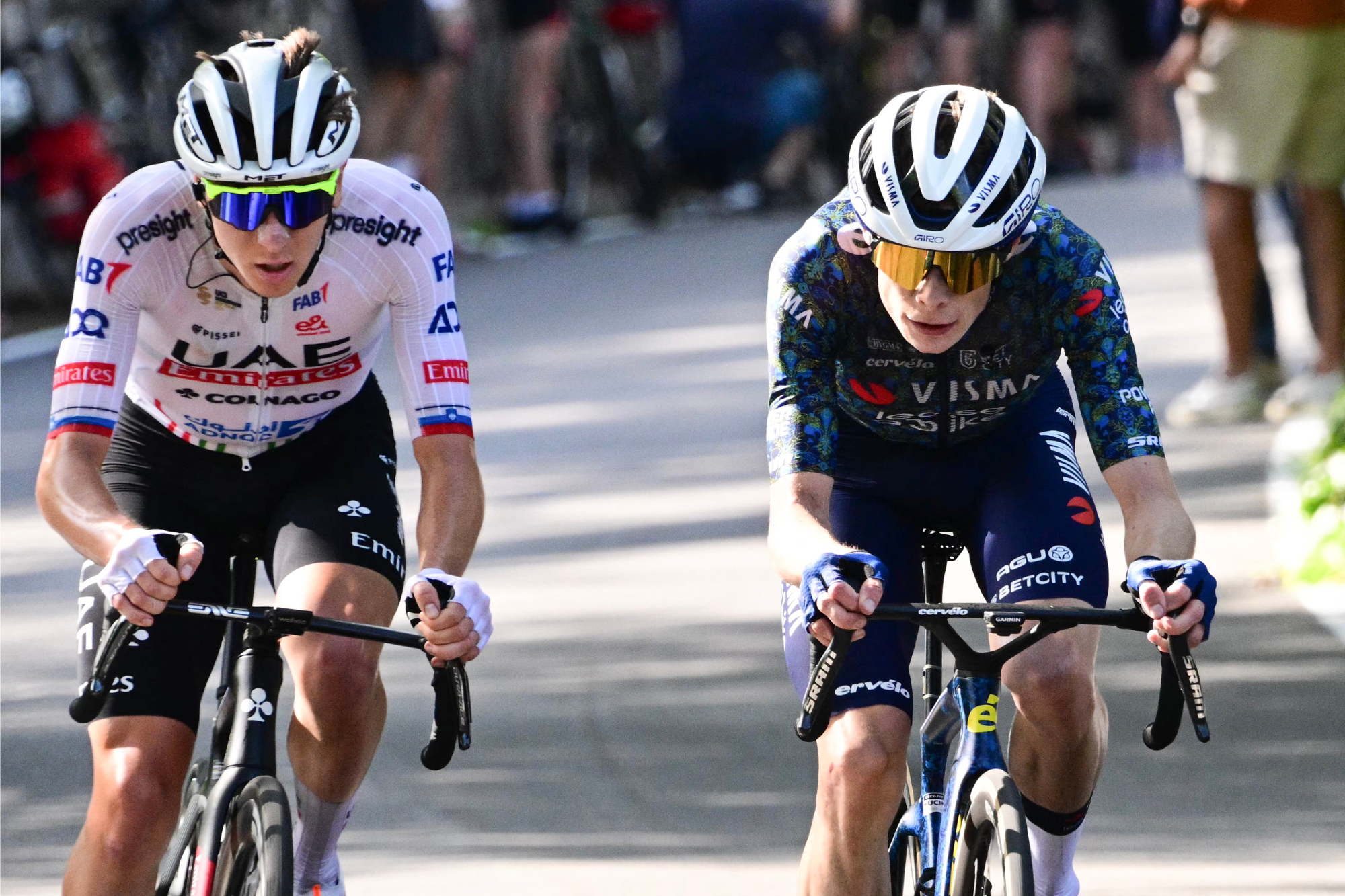Jonas Vingegaard was not going to pretend otherwise. He was anxious, fearful, concerned that he was going to lose time on stage two of the Tour de France. And that was before that crash at April’s Itzulia Basque Country that threatened to upend everything.
It wasn’t the length of the ascents in central Italy that concerned him, but the steepness of San Luca, a climb on the outskirts of Bologna used every year in the Giro dell’Emilia that has ramps approaching 20%. The Tour was going up it once, and then once again. It’s the sort of punchy terrain that suits Tadej Pogačar far more than it does Vingegaard.
So when the reigning Tour champion began stage two by the Adriatic Coast on Sunday, he was apprehensive that by the end of the 200km stage he would have ceded time to his arch-rival Pogačar. Not much, but something, and in their gripping duel, every second between the pair can feel like a chasm.
At the end of another stifling hot day out in Italy won by Arkea-B&B Hotel’s Kévin Vauquelin, Vingegaard surprised himself, his team and the entire race by responding to Pogačar’s predictable attack on the final ascent up San Luca, and even crossing the line a bike length in front of the Slovenian.
The UAE-Team Emirates man did take the yellow jersey off Romain Bardet, but Vingegaard is level on time at the top of the general classification with Pogačar, as too Remco Evenepoel and Richard Carapaz. Little wonder that the Dane was understandably chuffed with the outcome of the day.
“I think this was probably one of the stages I feared the most,” the 27-year-old said. “We actually expected that I would lose time because of my preparation.
“Honestly speaking, I didn’t have good preparation for this race, I only had one-and-a-half months to train properly, so I can be super happy with how everything went today… especially how I was able to follow Tadej on the second climb.”
In the two Tours that Vingegaard has won, he has done his damage on the longer climbs of the high mountains, while Pogačar has had more success on climbs similar to San Luca. It was why Vingegaard admitted he was “also fearing it in some kind of way”.
“Already before my crash it was a stage that suited him rather than me, and then especially after my crash I was even more behind,” he continued.
When Pogačar attacked in his trademark out-the-saddle style, Vingegaard was quick to react, although he waited before assisting his adversary. “He wanted me to pull on the kicker, but I waited otherwise he would have attacked me again,” Vingegaard reflected, showing his savvy tactical brain that has partly come to define him.
“From the downhill I started working with him to try to gain time on the other competitors.” Only Evenepoel and Carapaz were able to join them, the rest of the GC field 21 seconds behind.
“I can say now that if I’m not back, I’m super, super close to my normal level,” Vingegaard smiled. “I think this has gone way better than I ever expected. I am really satisfied as it’s been two hard days.”
It was late April when Vingegaard got back on the bike after puncturing his lung, breaking his ribs and a collarbone, and one constant message from his Visma-Lease a Bike team was how quickly their superstar was recovering. But still, team DS Frans Maassen insisted, “everyone was unsure about him when he started the Tour.
“It’s still only two days we’ve done, but for us it was difficult to know what the real level of Jonas was,” Maassen said. “This gives us a boost that we are now where we [wanted to be].
“He’s still Jonas Vingegaard but we still had some doubts – that’s normal – but after these two days we can say his level is really, really good. We know if someone can do it, [it’s him].”


